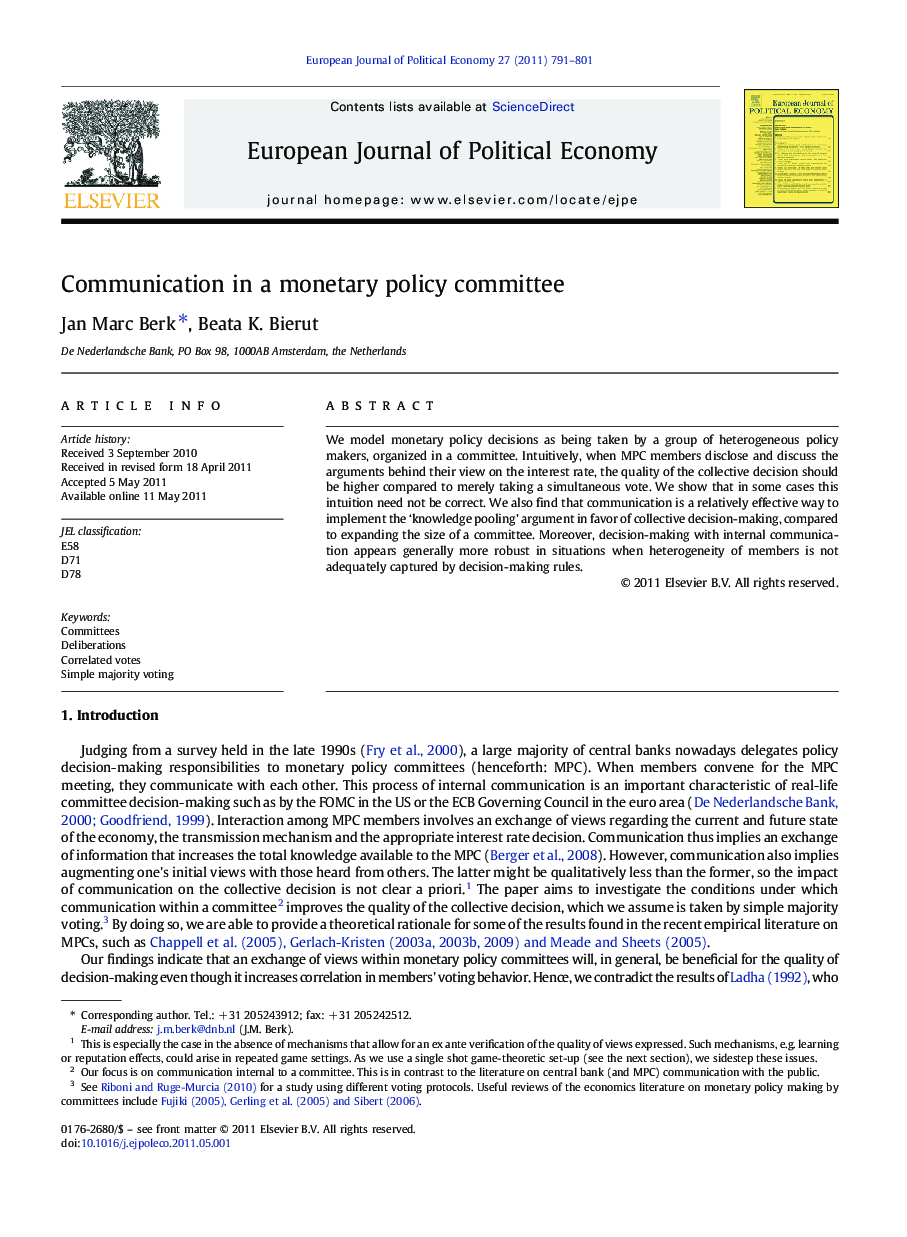| Article ID | Journal | Published Year | Pages | File Type |
|---|---|---|---|---|
| 5068275 | European Journal of Political Economy | 2011 | 11 Pages |
We model monetary policy decisions as being taken by a group of heterogeneous policy makers, organized in a committee. Intuitively, when MPC members disclose and discuss the arguments behind their view on the interest rate, the quality of the collective decision should be higher compared to merely taking a simultaneous vote. We show that in some cases this intuition need not be correct. We also find that communication is a relatively effective way to implement the 'knowledge pooling' argument in favor of collective decision-making, compared to expanding the size of a committee. Moreover, decision-making with internal communication appears generally more robust in situations when heterogeneity of members is not adequately captured by decision-making rules.
Research highlights⺠We model communication between members in a monetary policy committee. ⺠Communication is not always beneficial for the quality of the policy decision. ⺠Communication more effectively increases the committee's pool of knowledge than a larger size. ⺠Communication is more robust to suboptimal voting rules.
